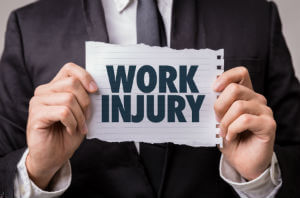Below are ten frequently asked questions by clients about Pennsylvania workers’ comp.
1. I was hurt at work. Can I sue my employer?
In most cases, the answer is NO. The Pennsylvania Workers’ Compensation Act (Act) has exclusive remedy provisions. This means that liability for a work-related injury falls solely within the scope of workers’ compensation. That means you may be entitled to workers’ compensation benefits. There are narrow exceptions to the exclusivity provision, but they are rare.
2. Must I report a work-related injury right away.
Yes. You should report the occurrence of a work-related injury to your employer within 20 days to be eligible for benefits back to the first day of wage loss. The statutory requirement is a work injury must be reported within 120 days. Failure to do so will bar a workers’ compensation claim. Of note, many employers have company policies to report a work injury immediately. Save yourself the angst. Report it immediately. More on notice here.
3. How much will I get paid on workers’ comp?
Temporary total disability benefits are based on your average weekly wage (AWW). The AWW is a calculation based on your wages prior to the work injury. Once the AWW is calculated, your wage loss benefit amount is then based on a chart issued at the beginning of every year by the Pennsylvania Department of Labor & Industry. It is extremely important that your average weekly wage calculation is accurate.
4. How do I get wage loss benefits?
If your claim has been accepted by your employer, they will begin paying temporary total disability benefits when you miss the eighth day of work. They will then pay you for the first seven days you missed when you miss the 15th day of work. If your claim has been denied or it has been accepted as a medical only, but you are out of work, you need to contact Mooney Law to file a Claim Petition for wage loss benefits.
5. Can I receive workers’ compensation benefits and unemployment compensation benefits at the same time?
You will not benefit from collecting unemployment compensation benefits while also receiving workers’ comp wage loss benefits. Why not? Pennsylvania law requires that workers’ compensation benefits be offset by any unemployment compensation benefits you receive. This is to prohibit double dipping. It is more advantageous for you to receive wage loss benefits, because those benefits are not considered to be taxable income. Unemployment benefits are considered taxable income.
6. When I go to the doctor for a work injury, what should I say to the doctor?
Easy answer is to tell them the truth. Explain in detail how the work injury occurred. Explain to the doctor all body parts that were injured, not just the one that hurts the most at the time. Finally, explain to the doctor the symptoms you are experiencing. The doctor will dictate a report from your visit and will detail what you say about the injury and the symptoms. Medical records will be extremely important throughout your workers’ compensation case. So be accurate. Do not exaggerate.
7. Do I need a doctor’s work note from my doctor for each visit?
Yes. Even if you were terminated from employment or are working for another employer, disability or restriction notes are critical to your entitlement to ongoing benefits. You should get a new work note at every visit with a medical provider.
8. I have received a notice of an Independent Medical Examination (IME). Do I have to attend?
Yes, you must attend. The Act permits an employer to have you undergo an exam at it’s request any time after the occurrence of a work injury. In fact, the employer is entitled to have you undergo an IME every six months. Failure to attend an IME will result in a Petition to Compel. Failure to attend an IME after a Judge orders your attendance will result in the suspension of wage loss benefits. You can read more about IMEs here.
9. Do I have to return to a light duty job offer?
Depends. First, if the light duty job offer is based on the work restrictions of your treating doctor, then yes, you should return to work and try the light duty position. You have a good faith requirement under the Act. If the job causes additional symptoms, then report that to your treating doctor. If the light duty job offer is based only on the IME, but your treating doctor has you more restricted or out of work completely, then no, you should not return to work. Follow your treating doctor. In either scenario, you do not have to accept light duty. However, not attempting light duty based on your own doctor can lead to a suspension of benefits.
10. Am I entitled to a settlement?
No. You are not entitled to a workers’ compensation settlement. That being said, many cases do indeed settle. However, it is important to understand that just like the employer cannot force you to settle your workers comp claim, no one can force the employer to settle either. Settlement must be mutual between the parties. You can read here important factor to consider when thinking about settling your claim.
If you have been injured at work, trust the experienced, proven, and results driven team at Mooney Law. Consultation for Workers’ Comp are FREE. Additionally, we only get paid if we collect for YOU. Call today at 717-200-HELP or drop us an email requesting a consultation at info@mooney4law.com.



